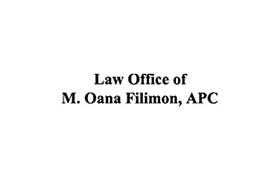EXEMPT PROPERTY
The items of property you are allowed to keep if a creditor wins a lawsuit against you or if you file for Chapter 7 bankruptcy. Most states let you keep clothin...
(more...)The items of property you are allowed to keep if a creditor wins a lawsuit against you or if you file for Chapter 7 bankruptcy. Most states let you keep clothing, household furnishings, an inexpensive car (or an expensive car on which you still owe a bundle), Social Security payments you haven't spent and other basic items. A few states let you keep your house. Following are brief descriptions of specific types of exempt property.animal exemption Allows you to keep animals such as household pets, livestock or poultry. The animal exemption varies among states. If your state simply allows you to exempt 'animals,' you may keep livestock, poultry or pets. Some states exempt only domestic animals, which are usually considered to be livestock and poultry, but not pets.appliance exemption Allows you to keep some of your household equipment operated by electricity, gas or propane. Examples include refrigerators, stoves, washing machines, dishwashers, vacuum cleaners and air conditioners.arms & accouterments exemption Allows you to keep some weapons (such as pistols, rifles or swords) and accouterments, which are the furnishings of a soldier's outfit, such as a belt or pack, but not clothes. A soldier's clothing is his or her uniform.building materials exemption Allows you to keep a certain amount of items needed to build or improve structures, such as lumber, brick, stone, iron, paint and varnish. This exemption is not available in all states.burial exemption Allows you to keep a cemetery plot, crypt, monument or the cash to purchase a burial plot. Some states allow you to claim the burial exemption only if you do not use your state's homestead exemption. States may also limit the amount exempted. This exemption is available in most states.crops exemption Allows you to keep products of the soil or earth that are grown and raised annually and gathered in a single season. For example, oranges (on the tree or harvested) are crops; but an orange tree isn't.farm tools exemption Allows you to keep the tools you use if your primary occupation is farming. Some states limit farm tools of the trade to items which can be held in the hand: hoes, axes, pitchforks, shovels, scythes and the like. In other states, farm tools also include plows, harnesses, mowers, reapers and other larger tools.furnishings exemption Allows you to keep a certain amount of furniture, fixtures in your home (such as a heating unit, furnace or built-in lighting) and other items with which a home is furnished (carpets and drapes, for example).health aids exemption Allows you to keep items needed to maintain your health, such as wheelchairs, crutches, prostheses or hearing aids. States either exempt all heath aids or limit the dollar amount of the total exemption.heirloom exemption Allows you to keep certain items passed from generation to generation which have special monetary or sentimental value.homestead exemption Protects a specified value or specified number of acres in a homestead. The amount you can protect with the exemption varies, depending on the state where you live. A few states have unlimited homestead exemptions, meaning a house worth even many millions of dollars can't be taken by judgment creditors or in Chapter 7 bankruptcy. At the other extreme, a small number of states have no homestead exemption at all.household goods exemption Allows you to keep a certain number of items of a permanent nature (as opposed to items consumed, like food or cosmetics) used in or about the house. It includes linens, dinnerware, utensils, pots and pans and small electronic equipment like radios and toasters. The amount you may keep varies from state to state.implement exemption Protects a certain amount of the instruments, tools or utensils you use to accomplish your job. Some states use this term instead of tools of the trade.in lieu of homestead (or burial) exemption An exemption available in some states only if you don't claim the homestead exemption or burial exemption. The amount of the exemption varies from state to state. It can be the approximate equivalent of the homestead or burial exemption or some amount fixed by state law. It's the same as the wild card exemption.jewelry exemption Protects certain items created for personal adornment; usually includes watches. Expensive jewelry is usually not included, although many states exempt wedding and engagement rings. Most states limit the total jewelry exemption amount, ranging from $250 to $1,000. Another term for jewelry is 'articles of adornment.'motor vehicle exemption Protects a self-propelled vehicle suitable for use on a street or road, such as a car, truck, motorcycle, van or moped, up to a certain value. For example, if your state's motor vehicle exemption is $2,500 (that's about average), your car is worth $10,000 and you still owe $8,000 to your lender, your car is exempt. You have equity of $2,000 ($10,000 - $8,000) and a $2,500 exemption to put toward it. (This assumes you can afford to keep making your car payments. If you can't, your lender will repossess your car and sell it at an auction.) On the other hand, if your vehicle is worth a lot and you don't owe anything on it, you probably won't be able to keep it, because the exemption won't cover the full amount of your equity.musical instrument exemption Allows you to keep certain instruments having the capacity, in and of themselves, when properly operated, to produce a musical sound. Pianos, guitars, drums, drum machines, synthesizers and harmonicas are musical instruments. Spoons (knocked on knees or into each other) and metal garbage can lids (when banged together like cymbals) aren't.property of business partnership exemption Protects business partnership property. Virtually all states allow this exemption if the property has the following characteristics: Each partner has a right to possess the property for partnership purposes, but has no right to possess it for any other purpose without consent of the partners. At a partner's death, his share of the partnership property passes to the surviving partners. The property isn't subject to state non-partnership property laws such as dower, curtesy, spouse's share or intestate succession.tools of the trade exemption Protects items of property needed to perform a line of work. For a mechanic, plumber or carpenter, tools of trade are the implements used to repair, build and install. For a doctor, tools of trade are the items found in the doctor's office and bag. For a clergy person, tools of trade often consist of no more than books. Traditionally, the exemption was limited to items that could be held in the hand. But most states now embrace a broader definition and a debtor may be able to fit many items under a tools of trade exemption. A motor vehicle is rarely considered a tool of the trade, unless it is a necessary part of the job--as it would be for a traveling sales representative--not merely used for commuting.wild card exemption Protects any property you choose, though it's not available in all states. Some states that include this exemption limit it to personal property; while others include real estate as well. Some states offer it only in lieu of homestead (or burial) exemption. In nearly all states that offer it, you can apply the exemption to nonexempt property, such as expensive jewelry or clothes, or use it to increase the amount for an already partially exempt item. For example, if Fergie's state has no specific motor vehicle exemption but does have a wild card exemption, Fergie can use the wild card exemption to put toward her car. If the state has a specific motor vehicle exemption, but the amount is limited, Fergie can use the wild card exemption to increase the exempt amount.
 x
x

 Oana Filimon Santa Ana, CA
Oana Filimon Santa Ana, CA AboutLaw Office of M. Oana Filimon, APC
AboutLaw Office of M. Oana Filimon, APC
